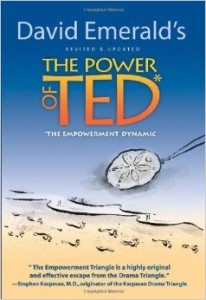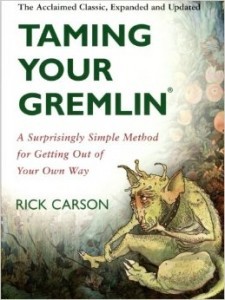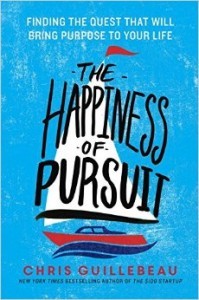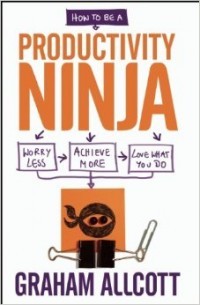Hannah Braime's Blog, page 23
September 6, 2015
Weekend reading: coaching vs. therapy, marriage advice & what to do when you fail
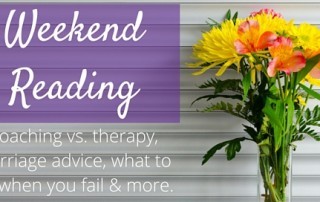
A selection of interesting and insightful posts from around the web:
One answer for all the advice columns ever
Feeling “negative”? It’s good for your mental health
100 questions to spark conversation and connection
Want to do more of X? Here are 10 simple ways to prioritise what you love
A brilliant explanation and analysis of why people self-sabotage their happiness
Ever wondered about the difference between coaching and therapy? It might not be as big as you think.
Some useful suggestions for what to do when you fail
The chemistry of building better habits
5 ways to stop worrying about what everyone things of you
Surprising marriage advice from divorced people
Also, huge thanks to Margarita Tartakovsky for inviting me to discuss creativity on Psych Central!
Happy weekend :)
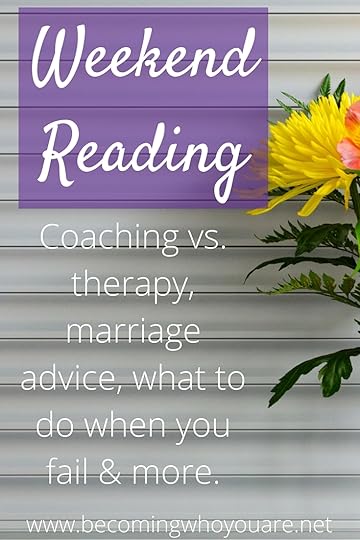
The post Weekend reading: coaching vs. therapy, marriage advice & what to do when you fail appeared first on Becoming Who You Are.









August 25, 2015
Are the Stories You Tell Yourself Helpful? Really?

Stories are a huge part of coaching and frequently show up in sessions, whether I’m the coach or the client.
And we all have stories. The aim of personal growth isn’t to get rid of our stories (more on why below), but to get better at noticing and questioning them when they come up.
I’ve dealt with, and continue to deal with, my own quota of helpful and not so helpful stories about myself and the world. In this post, I want to share an exercise I’ve found helpful on my own journey—I hope it’s helpful for you too.
A significant proportion coaching involves unwrapping and examining the stories we tell ourselves. We look at those stories that are serving us, those that aren’t, and find ways to reframe situations and relate to the world so that we can create stories that are more truthful and constructive in the present and future.
We dedicate time to stories because they have a huge impact on the way we experience ourselves and the world around us. When we examine those stories, we can see how true they are, and whether they’re skewing the way we see and experience the world.
Optimism and pessimism
Usually, these stories exist for a good reason that involves some kind of self-protection or preservation. More often than not, though, we’ve outgrown those reasons and no longer need the stories we’re telling ourselves. In his book The Way We’re Working Isn’t Working, Tony Schwartz describes the importance of noticing the difference between the facts of our lives and the stories we tell ourselves about those facts. If realism refers to the facts, then optimism and pessimism are both separate outgrowths of the stories we choose to tell ourselves about those facts.
Optimism and pessimism are outgrowths of the stories we choose to tell ourselves.
Click To Tweet
Inquiry
Equally, Byron Katie offers a set of questions she calls Inquiry to get to the root of our stories:
Is it true? (Yes or no. If no, move to 3.)
Can you absolutely know that it’s true? (Yes or no.)
How do you react, what happens, when you believe that thought?
Who would you be without the thought?
Like I mentioned above, it’s not realistic to expect ourselves to get rid of our stories altogether. Stories are how we make sense of the world and filling in gaps with our own meanings is an automatic function of our minds. Some stories can also be helpful.
Our stories are powerful and we get to decide on the next chapter.
Click To Tweet
How to uncover your own stories
It’s important to our wellbeing and experience of the world that we become more aware of our stories and to question them. You can use Byron Katie’s questions above for this as well as the following exercise adapted from The Way We’re Working Isn’t Working:
1. Think of a recent event or circumstance that triggered strong (negative) feelings for you.
2. Write down the facts (and only the facts). This is what actually happened. Stick to objective events and leave your interpretations or assumptions aside for the moment.
3. Now write down your stories about the facts (this is where you can go wild with your interpretations and assumptions!)
4. Compare your responses to 2 and 3. What differences do you notice between the two? What do you observe about your stories compared to the facts?
The stories we tell ourselves shape our lives, our relationships, and how we perceive ourselves. If you’d like to discover how to create more helpful stories in your life (and a better relationship with yourself), I’d love to work with you. Click here to find out more about coaching and how it could support you in creating your ideal life.
The post Are the Stories You Tell Yourself Helpful? Really? appeared first on Becoming Who You Are.









August 17, 2015
How to Create a Morning Routine That Will Make Your Heart Sing

How I start my day has a huge impact on how it continues. Being intentional about how I spend my time first thing has a knock-on effect on how conscious I am for the rest of the day. Maybe this is the same for you? If so, I thought I’d share a few things I’ve found helpful for creating a morning routine that gets me started on the right track:
It starts the night before
I go to bed early. Not super early but “early” compared to the time I used to go to sleep. I work at home, don’t have any set hours, and don’t really “need” to get up by a certain time. Even so, I’ve created a set bed time for myself because I know that a good night’s sleep has the biggest positive impact on my morning routine.
Clarity on my “When Life Works List”
(If you don’t have one of these, check out this podcast and accompanying worksheet). These are the activities that help us feel like the best version of ourselves. When we’re doing them on a regular basis, we can usually see a clear correlation between action and sense of well-being.
My non-negotiables include doing something creative every day, getting at least 7.5 hours sleep, journaling, meditating, and exercising. I know that when I do these things on a regular basis, I’m far better able to handle the high highs and low lows of life, and enjoy my day far more. As you’ll see, I’ve tailored my morning routine to include all these. Another non-negotiable is going outside, which I usually do in the afternoon (unless the weather is being very British).
Meditation
Some days, it feels like everywhere I look someone is advertising or talking about meditation, and that’s because it works. I aim for 10 minutes every day but even two minutes of meditation (yes two), is better than nothing.
I heard about this idea from Dandapani’s interview on The Unmistakeable Creative. Start with one minute for one month, move to two minutes the next month, and so on. This isn’t about getting to the point where you can meditate for two hours straight ASAP. Instead, it’s about building a sustainable habit.
Journaling
I’m a huge fan of The Artist’s Way and journaling in general (I’ve even written a book about it). One of the most important (and most challenging) parts of my morning routine is my Morning Pages: 3 A4 pages of stream-of-consciousness writing.
When I first started, it was taking longer than Julia Cameron’s suggested 30 minutes, mainly because I found it hard to focus. While I can bash out 750 words on a laptop in under 15 minutes, hand writing them was a lot slower. These days, I tend to do it on a laptop because it’s easier to store my entries digitally when I travel.
Journaling is a great way of getting everything out of my head and onto paper, plus it helps me plan for the day. If there was just one activity from this list that I recommend everyone try, it’s this.
Journaling first thing is a great way of clearing your head and planning your day.
Click To Tweet
Create something ASAP
As much as I love binge-watching episodes of Castle, I also know I need to balance creating with consuming to feel at peace with the world. At best, this involves writing or sharing something, but even doing a good workout (i.e. creating better health and fitness) counts. This isn’t something that will appear in everyone’s morning routine, but I feel incredible when I hit 9 or 10 am and already have something I can show for my morning.
Remember that it’s just a support (and don’t take it too seriously!)
This is a point that tends to get lost amidst many morning routine-related discussions. I’m committed to starting the day off right but I don’t take it so seriously that I lose sight of the rest of the day too. Morning routines are a support for doing your best work and experiencing the best day possible but they’re not a substitute for actually doing the work and experiencing the day itself.
Morning routines are a support for your best work but not a substitute for the work itself.
Click To Tweet
Do you want to create a morning routine that gets your day off to the right start? This is one of the topics we’ll be covering in From Coping to Thriving, which starts on 7th September. Registration is now open, you can find out more and join us here.
Image: David Mao
The post How to Create a Morning Routine That Will Make Your Heart Sing appeared first on Becoming Who You Are.









August 10, 2015
Why the World Needs You to Thrive
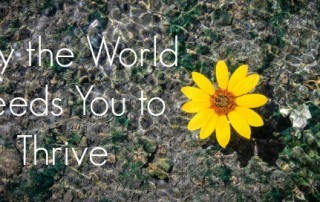
“What I am is good enough if I would only be it openly.”
– Carl Rogers
For the longest time, I equated “self-care” with “selfish”. I thought it was the domain of people who had far too much time and money on their hands and the realm of people who were self-indulgent. All in all, I saw it as something that was quite embarrassing and cringe-worthy.
Now I know different.
I know that it’s not about time, nor about money. I know there is a big difference between self-care and self-indulgence. And, I definitely know that we show up more fully and are nicer people to be around when we’re taking care of our needs.
When you thrive, you help other people thrive too.
No one is going to thrive for you, and no one cares about your experience of life quite as much as you do. Yet, many of us are waiting for permission to go out and do the things we really want to do and be the people we really want to be. When you thrive, you’re implicitly showing people, “This is what it’s like to take ownership for your experience of life, and guess what? It’s AWESOME.”
To the right people, you will show them it’s possible. And you might be the only person in their lives who does that.
When you thrive, you have a fuller experience of life.
Life stops feeling like a struggle to meet needs day after day and becomes an experience of enrichment and joy. And when we are enriched and joyful, we pass that on. We smile more fully at the barista; we are more likely to see opportunities to help, to connect, to do nice things for people we care about. And that creates a butterfly effect of tiny kindness ripples.
Even if you could make one person’s day a little brighter, wouldn’t you say yes to that?
There is no real meaning to life, we create meaning.
I’m not religious or particularly spiritual so, without being nihilistic, I don’t believe there’s any pre-determined meaning to my life. Don’t get me wrong, I’m grateful to be alive, grateful for life, and would much rather be here than not. At the same time, the reason for our existence boils down to: “Evolution happened, a long line of ancestors had babies, and now here we are.”
You might disagree with this, but I find it uplifting and inspiring. To me, one of the most rewarding challenges in life is to create some sense of meaning and purpose while I’m still here. This approach has influenced a lot of the choices I’ve made and continues to do so, but it’s only something I can embrace when I’m thriving. When I thrive, I’m more creative, more committed, more willing to take reasonable risks, and more able to sit with uncertainty. Bit by bit, all those things help me create meaning for myself and attempt to support others as they create their meanings too.
Yes, thriving is about you and your experience of life. It’s about much more than that.
What kind of world do you want to create?
If these ideas resonate and you’d like to thrive, you’re invited to join us for From Coping to Thriving, which starts on 7th September. Registration is open now, and you can find out more here.
Image: Mike Nay
The post Why the World Needs You to Thrive appeared first on Becoming Who You Are.









August 8, 2015
#87: Healing & Growing Through Journaling with Susannah Conway

In this week’s podcast, I’m delighted to be talking all things journaling with Susannah Conway.
 Susannah is the author of This I Know: Notes on Unraveling the Heart
Susannah is the author of This I Know: Notes on Unraveling the Heart
Instant Love: How to Make Magic and Memories with Polaroids
Say Hello
Susannah
Instagram: @susannahconway
Website: susannahconway.com
Hannah
Twitter: @hannahbraime
Facebook: The Becoming Who You Are Community
Website: becomingwhoyouare.net
Subscribe to the Podcast
Intro and outro: Stephanie Murphy
Image: William Iven via Unsplash
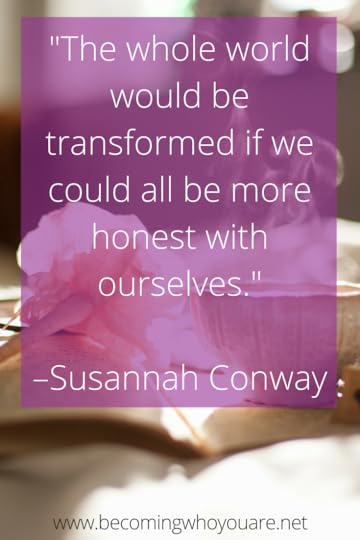
The post #87: Healing & Growing Through Journaling with Susannah Conway appeared first on Becoming Who You Are.










August 5, 2015
#86 How to Get Clarity on Your Life with This Simple Coaching Tool
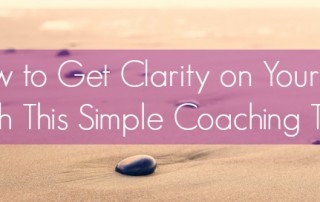
In today’s podcast, we’re doing something a little different. As you might know, I’m a coach and work with life coaching clients through Becoming Who You Are, as well as creative coaching clients through my other site, hannahbraime.com. As part of my practice, I’ve amassed a huge master list of tools, exercises and questions that clients have found helpful and I thought it might be useful to share some of these here on the podcast
Starting today, I’m going to be sharing a bite-sized coaching tool with you each month. These are designed to be practices or questions that you can begin to implement right now and I hope they’ll support you in becoming who you are!
We’re starting with a popular coaching tool I call “The Wheel of Life.” This is useful for gaining clarity and transparency around your level of satisfaction and fulfilment in different areas of life, plus the steps you can start taking to level up across the board.
During the episode, I mention a ready-made worksheet you can download, print and fill out. You can get your copy below:
Get your Wheel of Life worksheet here
What do you think of this new podcast feature? Let me know!
Useful Links
Coaching
The Becoming Who You Are Community
Image: Colton Brown
The post #86 How to Get Clarity on Your Life with This Simple Coaching Tool appeared first on Becoming Who You Are.










August 3, 2015
5 Things to Stop Doing Right Now for Blissful Self-Care

My long journey towards developing a kinder relationship with myself has involved many ups and downs. One lesson I’ve learned along the way is that self-care is as much about what we stop doing as it is about what we start doing. Here are five obvious-but-surprisingly-effective things I’ve learned to stop doing that have helped my self-care:
1. Staying up late
One of my non-negotiable is getting at least 7 hours of sleep per night. If I get less than this, I am unfocused, grumpy and more likely to feel blah for no reason (well, there is a reason: not enough sleep). I used to be perpetually sleep deprived and called it “normal.” Having given up my alarm clock in the last few years, I definitely notice the difference between “well-rested Hannah” and “not-enough-zzzs Hannah.”
Even if you have the space to sleep in past noon, staying up late isn’t cool for your hormones. Spending time in daylight stimulates our vitamin D production, which is necessary for optimal health.
2. Overindulging
Most of us have our go-to coping strategies and comfort mechanisms. Common candidates include over-eating, over-drinking, over-sleeping, over-spending or some other kind of over-indulging. These things are sneaky because they can feel self-caring in the short term. What they really do, however, is stop us feeling our feelings. When we rely on these things in the long-term, we usually end up feeling worse—not to mention the negative consequences for our health, bank balance and quality of life.
That’s not to say that we should never overindulge. My personal feeling is that a reward or treat is no biggie. We just don’t want to pitch our tent there and turn overindulging into a regular way of dealing with uncomfortable feelings.
3. Meeting one need at the expense of another
This is similar to overindulging but is important enough to examine in more depth.
We all have a set of human needs. Thee range from basic things like water, food and oxygen, all the way up to more complex desires like reaching for our potential. Between those two points is a wide spectrum and, within that spectrum, we want to make sure that we’re not meeting one need at the expense of another.
Self-care 101: Don’t satisfy one need at the expense of another.
Click To Tweet
Quitting your job and going to live on the beach in Thailand might satisfy your need for adventure but if you also have a strong need for stability and security, that’s not going to work for you. Equally, impulse-buying that pair of designer booties might satisfy your need for spontaneity, but if you use your adult education fund to purchase them then it’s going to be at the expense of your need for growth.
Again, this isn’t to say that there isn’t a time and place for moving to Thailand or designer booties. It’s just about making conscious decisions that take into account all of our needs, not just listening to the one voice that happens to be in the driving seat at that time.
4. Hanging out with people you don’t actually like
Self-care in relationships is asking yourself “Do I like this person?” first before worrying about whether or not they like you.
Boundaries are beautiful, especially when it comes to people who take advantage, don’t understand reciprocity or aren’t respectful. Life is way too short.
5. Complaining about things on repeat
I’ve learned (time and time again) that if something keeps coming up in life, that’s a sign that it’s unresolved and deserves some attention.
When I find myself complaining about someone’s behaviour, it’s usually because I haven’t set proper boundaries or been clear in my communication. When I find myself getting super annoyed by a particular person or situation, it’s usually because that person or situation reflects something that I’m not owning in myself.
Focusing on what I can do to change the situation or how I could show up differently not only feels much better, it’s a much more productive and adult way to approach challenging situations.
If you want to upgrade your self-care, you’re invited to take part in the BWYA summer sale. Between now and 9th August, Be Your Own Hero and 4 weeks of Self-Knowledge are both available on a pay-what-you-want basis. Click here to find out more.
Image: Maria Victoria Heredia Reyes
The post 5 Things to Stop Doing Right Now for Blissful Self-Care appeared first on Becoming Who You Are.









July 20, 2015
How to Overcome Fear of Missing Out (FOMO)
Fear of missing out (FOMO): “a pervasive apprehension that others might be having rewarding experiences from which one is absent.”
– Wikipedia
One of the first times I remember experiencing FOMO was when I was 10 and recovering from meningitis. A friend had a birthday sleepover and, although I was allowed to go to the party earlier in the day, I wasn’t allowed to stay over. Of course, because of this I was automatically convinced that this was going to be the BEST SLEEPOVER EVER and was gutted I was missing out.
As an adult, I’ve noticed that FOMO seems to come up around specific needs.
For me, it’s connection. I see Facebook friends posting pictures of themselves at conferences and suddenly it seems like it would totally be worth paying thousands of dollars, dealing with the upheaval and jet-lag and travelling halfway around the world just for a two-day event. For some people, it’s things like visibility, recognition, and/or acceptance: they see a colleague or friend posting in a big online publication and fear they’re slipping behind. They see friends getting married, buying houses, having babies, travelling, and their life feels somewhat mundane in comparison.
Most of all, the thing I’ve noticed most about FOMO is that it’s not just about missing out. Depending on the context, it’s also tied to envy, a fear of regret and a sense of not quite being or having enough.
Fear of missing out isn’t just about missing out; really, it’s about being enough.
Click To Tweet
As much as I love this crazy internetty world we live in, I’m also aware it can become one big vicious cycle of FOMO. As Dr. John M. Grohol illustrated in this article, social media is one of the breeding grounds for FOMO. We feel the temptation to edit our lives, posting only the most flattering photos, the coolest links, and the most like-worthy updates. We also see other people doing the same, which further fuels our urgency to produce flattering photos, cool links and like-worthy updates. And so the cycle continues.
So… what to do to deal with FOMO?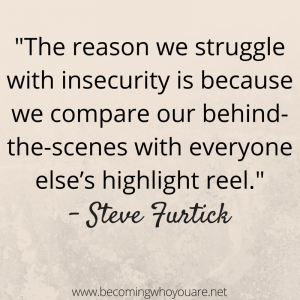
Remember: Just because we can do something doesn’t mean we should
Just because we can monitor our email inbox from waking until sleeping, put that course on our credit card or attend every social event we’re invited to doesn’t mean doing these things is a good plan. This is why it’s important to pay attention to our values and ask ourselves “Is this going to bring me closer to, or take me further away from what I truly want?”
Slow down
FOMO usually comes with a degree of urgency, which can lead us to make bad decisions. It’s somewhat ironic that in trying to avoid regret, we end up doing things that leave us more likely to experience regret. Whenever I experience FOMO, I know that’s a good signal to sloooow down and take a step back before I react in a hasty way to the situation.
Look for the underlying needs
According to one study, people who frequently experience FOMO also tend to have unmet needs for love and respect, which makes sense given the contexts in which FOMO usually rears its head.
I’ve started paying viewing my own episodes of FOMO as a cue that it’s time to up my connection quota and take steps to meet that need myself. This doesn’t even have to involve attending the event/taking part in the activity that provokes my FOMO because it’s not really about that particular event or activity: it’s about the root needs underneath. Once I acknowledge that need(s), the urgency dissipates.
Be Pro-active, not re-active
Something I’m working on right now is approaching life in a way that’s pro-active rather than re-active. Instead of running around putting out metaphorical fires all the time, I’m trying to make sure that I address nagging issues before they become big problems, that I’m ahead of deadlines, and that I under-commit rather than over-commit. Decisions motivated by FOMO fall into the “re-active” category and usually come with more stress and anxiety than they’re worth (even if the experience ends up being positive).
It’s OK to be “just you”
And I don’t mean just in the context of “only,” but in the context of “unaltered.” As Judy Garland famously said, “Always be a first-rate version of yourself, instead of a second-rate version of somebody else.”
If everyone were doing the same things at the same time, the world would be a boring place. Your differences and decisions are part of what make it varied, beautiful and unique.
Finally,
Remember that it’s not over until it’s over
Missed out on an awesome dinner party? Host your own.
Wanted to go to a great event but didn’t find out about it until the last minute? Get a few of your favourite people together for your own workcation.
See a friend making leaps and bounds with her career? Ask her how she’s doing it.
Right now, as you’re reading this, you’re still here, still alive (and may it stay that way for a good many years). That means you aren’t missing out. You probably have far more opportunities to create what you want than you realise…
How do you deal with FOMO? Join the conversation in the BWYA community and share your thoughts .
Image: Ken Lawrence
The post How to Overcome Fear of Missing Out (FOMO) appeared first on Becoming Who You Are.









July 15, 2015
Feeling Overwhelmed? How to Do a (Non-New Age) Life Cleanse
Do you ever feel like you have a bajillion things to do and no idea where to start? More on your plate than any human could handle? Enough on your to-do list to last a lifetime?
Me too!
This week on hannahbraime.com, I’m sharing five practices I’ve found useful for those times when you feel like you need to be doing all the things. Read about them here or click the image below.
Image: William Iven
What are your go-to suggestions for getting out of overwhelm? Leave a comment and share your thoughts.
The post Feeling Overwhelmed? How to Do a (Non-New Age) Life Cleanse appeared first on Becoming Who You Are.









July 3, 2015
Recommended Reading: June
I missed sharing my favourite personal development books for May as I was in Berlin this time last month, but here are June’s picks (Take a peek at my full reading list here).
Favourite? The Happiness Hypothesis is a close contender, but The Power of TED is my favourite read from the past two months. It’s short, actionable, hugely valuable, and I hope it will make its way onto required reading lists around the globe very soon…
Have you read any great books about personal development or authenticity recently? Leave a comment and share your suggestions here.
The post Recommended Reading: June appeared first on Becoming Who You Are.












